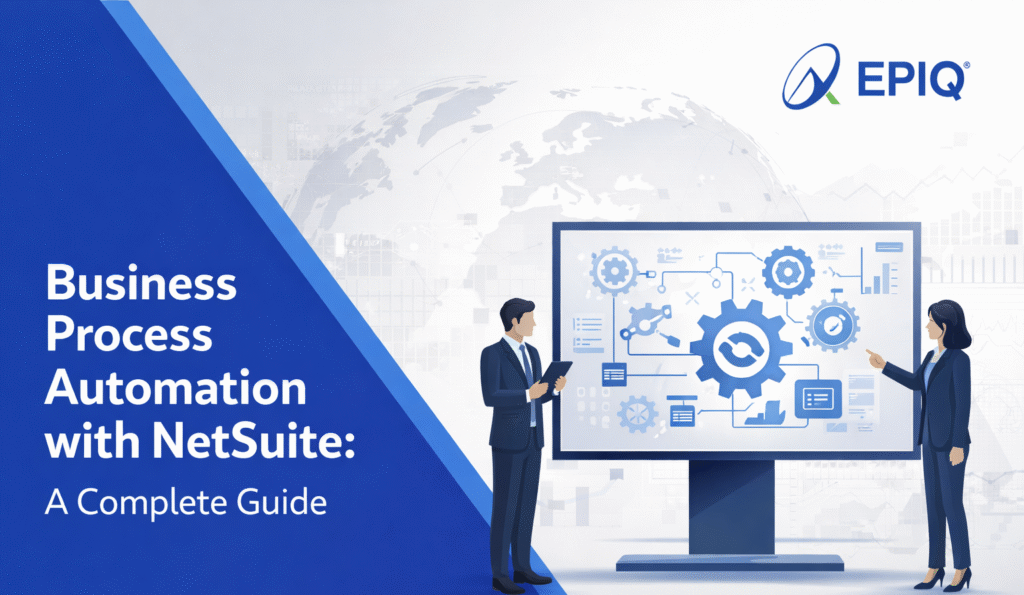Table of Contents

Mastering Inventory Management with NetSuite
Tracking inventory transfers helps businesses keep an accurate account of where items are located, helping prevent stock outs or excess supplies, as well as controlling costs by improving compliance and accountability.
Adjusting inventory values regularly based on market changes is key for accurate financial reporting and to avoiding costly losses of profits or increased costs. Failing to do this could result in inaccurate financial reporting as well as inaccurate financial reporting leading to errors that lead to loss of profit or increased costs.
Simple Inventory Adjustments
Reliable forecasting helps your business determine how much inventory to keep on hand. Utilizing various demand forecasting techniques, demand forecasting can assist with finding an equilibrium between shortening lead times and controlling inventory costs.
NetSuite’s inventory management features provide detailed insights into stock levels, movements, and turnover rates – giving companies insight into inventory issues such as waste, loss or obsolescence that could cost their company dearly. A food distributor might optimize warehouse placement and transportation routes to lower costs and maximize productivity.
Manual warehouse transactions can lead to inaccurate data and delivery delays. NetSuite allows you to track inventory with barcode scanning and transmit it live to an ERP system in real time, eliminating errors and streamlining warehousing processes. Use an inventory management solution such as RF-SMART that has been built-for-NetSuite certified for improved accuracy and reduced risks of data disruptions.
Simplifying Inventory Adjustments with NetSuite Forms
NetSuite warehouse customers strive for inventory accuracy nearing 100% as part of their overall goal, but this goal may prove near-impossible when using manual or paper processes due to too much room for error.
Implementing strategies such as ABC analysis, Just-in-Time Management and other stock control techniques are essential to reaching high inventory accuracy rates. NetSuite’s integrated inventory management system automates tracking while cutting storage expenses and overhead costs.
Implementing a reorder point strategy enables companies to set higher reorder points before seasonal demand, but then lower them once it subsides to prevent overstocking. Furthermore, inventory adjustment features allow businesses to manage valuation adjustments (i.e. reducing an item’s total value) and location adjustments more easily than ever.
Tracking Inventory Transfers with Ease
Routine inventory checks and adjustments are an integral component of accurate financial reporting, but failing to do so could result in inaccurate financial reports, which could potentially result in the loss of profits or increased costs for businesses. By monitoring inventory, keeping precise records, and using automation tools such as NetSuite Inventory Value Manager to reduce errors, businesses can ensure accurate inventory values on NetSuite inventory levels.
Adjust Inventory forms provide a quick way to alter both quantity and cost estimates without placing a purchase order, providing flexibility in accounting for mistakes, thefts or miscounts while still retaining cost estimates based on standard rates for standard cost items such as quantity times rate.
Use the same import template you would for other record types when creating inventory adjustments, but make sure to add subordinate and adjustment account fields (which are often an expense account).
Inventory Insights with Reports and Analytics
Transferring inventory between locations is an integral component of every supply chain, enabling businesses to establish accurate shipment estimates, optimize safety stock levels, reduce costs, and more. Poorly managed transfers may lead to errors, delays, and dissatisfied customers.
Utilizing RF-SMART, an inventory management solution developed for NetSuite, helps businesses avoid these issues. It enables them to track inventory from production through warehouse distribution while automating manual processes, monitoring inventory levels and automating reorders while helping reduce costly mistakes like inaccurate forecasting and unnecessary handling.
Businesses looking to improve internal transfer accuracy can use automated workflows, train employees on proper transfer procedures and analyze transfer data periodically. They should also implement segregation of duties and enforce accountability – these steps can help achieve improved performance while increasing operational efficiency.
Fulfilling Orders with Transfer Orders
Inventory control is a core business practice that helps organizations reduce costs and prevent stockouts. Successful inventory control requires maintaining an accurate picture of current and anticipated future stock at all times; NetSuite inventory management technologies automate and streamline this process for you so that your supply chain stays informed at all times.
Manage inventory levels, order statuses and shipment tracking across all locations with ease. Receive alerts when stock levels decrease while keeping costs under control.
NetSuite provides powerful warehousing and item distribution workflow tools to optimize safety supplies, reduce costs, save time and make informed decisions faster. Plus, with over 250 built-in and customizable reports to view from various perspectives and analyze performance with one source of truth – NetSuite helps businesses make informed decisions quickly!
Automating Inventory Management for Efficiency
Inventory optimization is key to cutting costs, increasing warehouse productivity, and providing superior customer experience. NetSuite software enables your business to quickly streamline workflows, automate processes, and increase inventory visibility throughout its supply chain.
Automated inventory management tools enable businesses to identify optimal stock levels based on anticipated sales and purchase trends, by setting reorder points and preferred stock levels. Removing manual touchpoints reduces costly delays in order fulfillment and reduces manual touchpoints altogether.
Implement a flexible inventory management strategy with the ability to categorize items according to importance and value. For instance, consumer electronics companies could assign higher priorities for high-value items like smartphones (category A) while taking a more relaxed approach with accessories (category C). This approach optimizes inventory management while streamlining warehouse operations.
Inventory Control Management
Inventory control in multiple locations or warehouses can be an intricate business practice, and using internal transfer orders efficiently allows companies to move materials between locations while keeping track of items in transit and assuring accurate stock movement throughout their organization.
At NetSuite Inventory Solutions, our goal is to enable companies to meet customer demands while minimizing excess stock levels for maximum success. NetSuite inventory solutions enable organizations to optimize inventory levels through demand-based planning based on historical sales data, forecasts, and seasonality analysis.
Utilizing transaction item options allows businesses to tailor their inventory to customer and industry requirements while cutting costs. Tracking inventory item options helps companies reduce carrying and sunk costs by monitoring order fulfillment cycle times, labor productivity rates, and stock out rates; managing these metrics can help identify areas for improvement and drive operational efficiency.
Why Does NetSuite Expertise Matters?
NetSuite offers a powerful inventory management system, but its full potential is unlocked through expert guidance. Here’s why:
The complexity of the System: NetSuite is a comprehensive platform. Experts understand its intricacies and can configure it to perfectly match your specific business needs. They ensure you leverage the most relevant functionalities for optimal inventory management and planning.
Data Migration and Integration: Migrating existing inventory data and integrating NetSuite with other systems requires expertise. Experts handle this process seamlessly, ensuring data accuracy and eliminating disruptions to your workflow.
Customization for Efficiency: NetSuite allows customization. Experts can tailor functionalities like reorder points, stock levels, and categorization based on your unique inventory profile. This streamlines warehouse operations and optimizes inventory based on demand.
Advanced Analytics and Insights: NetSuite offers powerful analytics tools. Experts can help you harness this data to gain valuable insights into sales trends, seasonality, and supplier performance. These insights inform data-driven inventory planning decisions, minimizing stockouts and overstocking.
Ongoing Support and Training: Optimizing inventory management is an ongoing process. Experts provide ongoing support to address technical challenges, train your team on best practices, and ensure continuous improvement in your inventory management strategies.
NetSuite expertise bridges the gap between the platform’s capabilities and your business needs. This specialized knowledge is crucial for optimizing inventory management, improving inventory planning, and ultimately maximizing your return on investment in the NetSuite platform.
Why Epiq as a NetSuite Partner?
At Epiq, you can connect to certified, skilled, and experienced NetSuite Consultants. These experts can help you with highly scalable, flexible, cloud-based ERP Solutions and let you know the tips to optimally use NetSuite Inventory Management. Our experts leverage years of experience, and industry-centric expertise in driving Digital Transformation via Cloud Computing Solutions. You can make the most of their proven methodologies and experience to scale up with unrivaled business efficiency, extensive productivity, and world-class technology enhancements.







